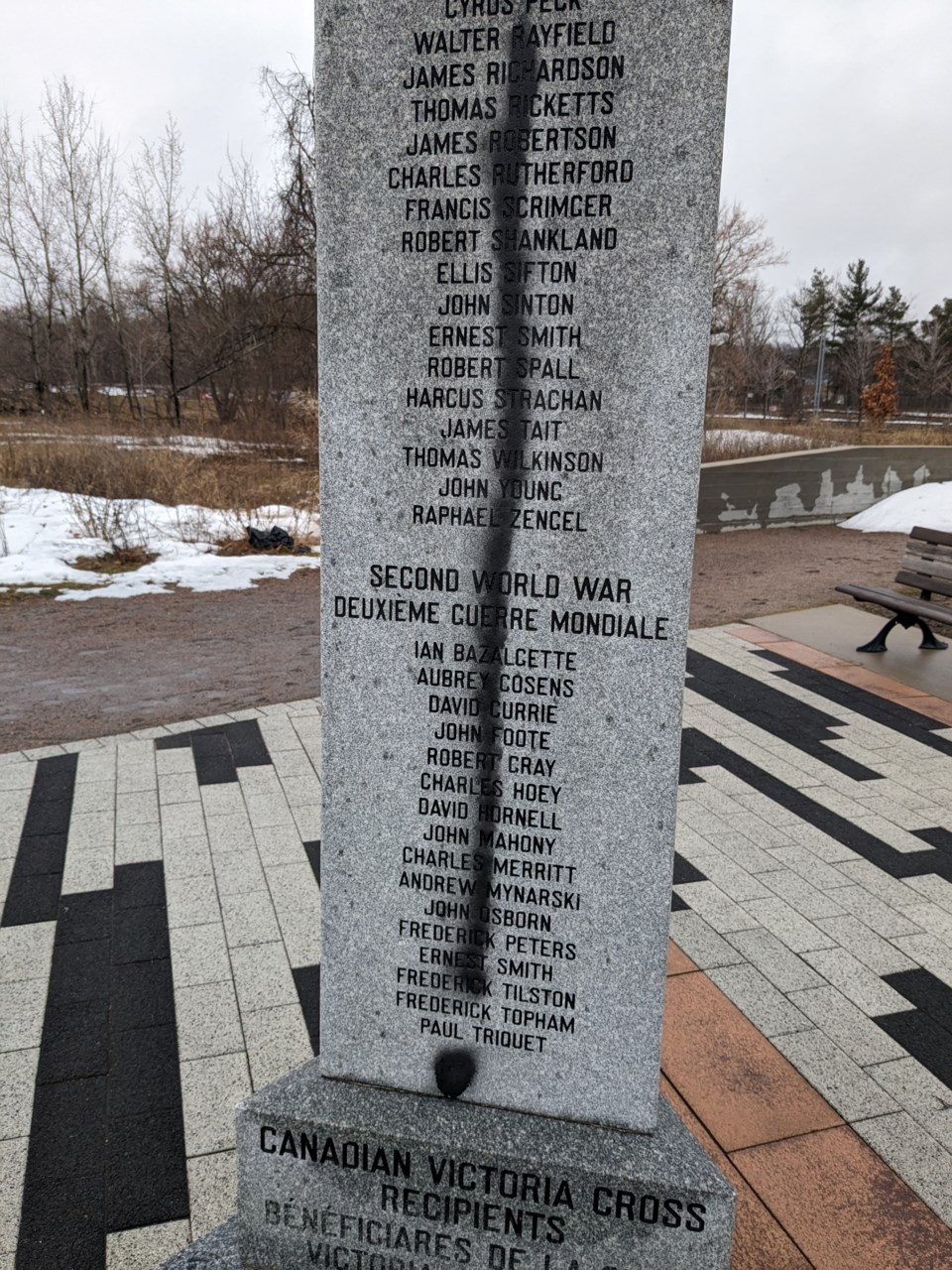Barrie police are investigating after a stone monument honouring Victoria Cross recipients was vandalized at Military Heritage Park along the city's lakeshore.
Police say they still have very little information after the memorial was spray-painted with a black streak through several names at the south-end park, which honours the Canadian military and people who served in the various conflicts the nation has been involved in.
Barrie police communications co-ordinator Peter Leon said it was “disgraceful.”
“That is an area with full public access and is there because of the incredible relationship between the city and the Canadian military, particularly Base Borden,” Leon told BarrieToday. “Anyone who would think of doing that with the purpose of defacing the names of our brave men and women is disgraceful and should we find out who they are, we will hold them responsible for their actions.”
The vandalism appears to have happened sometime last weekend, he added.
The Victoria Cross is the highest honour a person can receive and goes to those who display bravery, high valour and self-sacrifice.
The park, which is located beside the Southshore Centre, was completed with more than $570,000 in funding provided through the Federal Economic Development Agency for Southern Ontario, Canada 150 Community Infrastructure Program, Barrie Rotary Club, and CFB Borden.
It officially opened on Oct. 27, 2017.
In October 2013, Princess Anne oversaw a dedication of the park and, earlier this month, the Rotary Club and city staff planted 25 Vimy oak saplings in the eastern end of the park, which is the largest single planting of the trees in Ontario.
The story of Lt. Leslie H. Miller collecting acorns after the Battle of Vimy Ridge in April 1917 was told during the day’s opening. Miller shipped acorns back to Canada after the battle from the lone surviving Vimy oak after the rest had been destroyed during the war. That tree still survives among the many which eventually grew and stand in Vimy, France today.
Also in the local park are three Corten steel panels honouring the contributions made during the First World War, Second World War and the Indigenous contributions in military campaigns. A plaque in the park depicts Francis Pegahmagabow, the most decorated Indigenous soldier in Canadian history.
Pegahmagabow, or “Peggy” as he was called in the trenches, was a legendary sniper who shot 375 German soldiers and captured 300 more.



